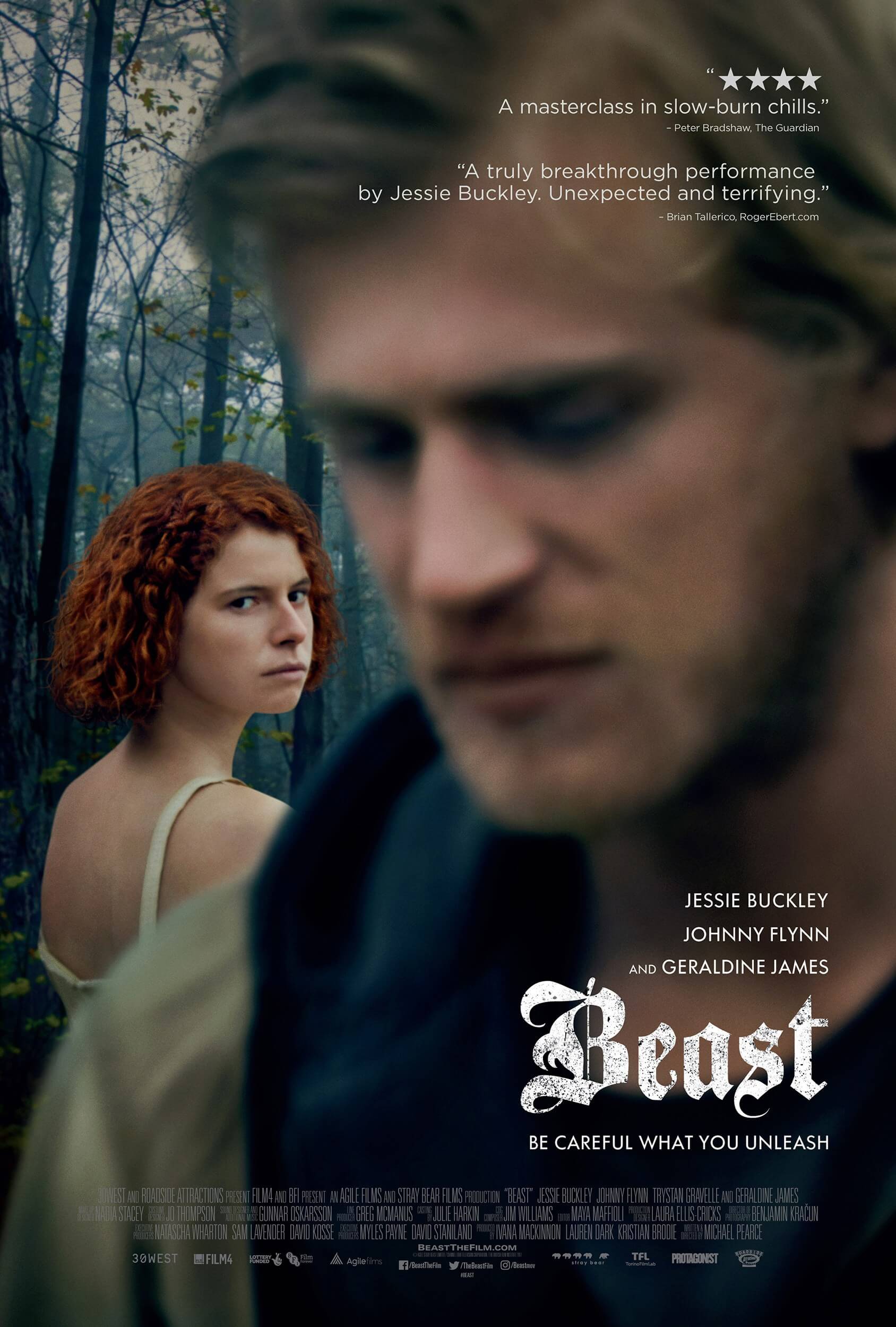The psychological thriller Beast is too ambiguous for its own good

There are only two characters of any real significance in Beast, the debut feature from British filmmaker Michael Pearce, and its title could plausibly refer to either one of them. We’re first introduced to Moll (Jessie Buckley), a timid-looking young woman who understandably gets annoyed when her birthday party—at which the guests appear to include no friends of her own, just relatives and family acquaintances—gets hijacked by someone else’s surprise pregnancy announcement. Despondent, Moll bails on the party, spending the night dancing at a club with a stranger (Charley Palmer Rothwell), who then sexually assaults her when she politely declines to hook up with him. Thankfully, she’s rescued by another strange man, Pascal Renouf (Johnny Flynn, a musician who previously starred opposite Anne Hathaway in the little-seen Song One), with whom she soon falls in love. But this soft-spoken handyman has a sketchy past, making him the police’s prime suspect in a string of local murders. All of the killer’s victims are women, roughly the same age as Moll. Is he or isn’t he? And if he is, might she be next?
So far, so ordinary. Pearce’s slight twist (he also wrote the screenplay) is to gradually reveal that Moll herself has a history of violent instability, having stabbed a schoolmate with a pair of scissors many years earlier. Beast functions more as a psychological case study than a conventional thriller, repeatedly diving into Moll’s nightmares and suggesting that she fears her own impulses more than being murdered by her new boyfriend (for whom she provides a false alibi). Buckley’s raw, increasingly feral performance is the film’s primary asset, maintaining an underlying tension that’s too rarely matched by either narrative or atmosphere. Indeed, Moll is so plainly disturbed that Flynn’s deliberately opaque turn as Pascal—he leans very hard on a sexy-sinister half-smile, employing it for nearly every occasion—never really poses a credible threat. Arguably, that’s exactly what Pearce intends, but subverting this hoary subgenre demands more acuity into the damaged mindset than Beast ultimately provides. The concept needed Polanski circa Knife In The Water and Repulsion, and while this is a promising debut, Pearce is nowhere near that level yet.
Also, there’s such a thing as being too damn ambiguous. Beast does eventually reveal its killer’s identity (following an obligatory feint in another direction), but Pearce carefully plants clues that imply an alternative solution, along with reasons why one might doubt what appears to be a confession of guilt; the film ends on a disquieting note engineered to prompt arguments about what really happened. But this is the wrong kind of movie for that approach, which works better when the focus is on clever plotting rather than aberrant psyches. In this context, it feels like an emergency parachute for the audience’s attention. Buckley’s ferocious work—which must have startled British viewers who know her primarily from BBC period dramas and her second-place finish on an American Idol-style talent show a decade ago—deserved Pearce’s complete faith and trust. There was no need to supplement it with cutesy uncertainty.